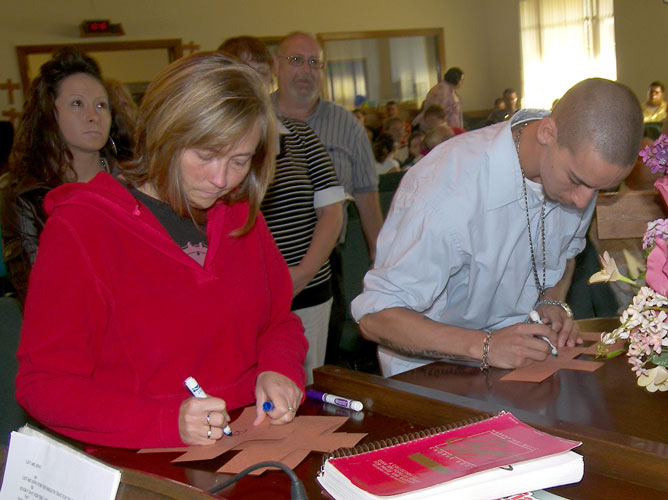I’ve always felt guilty, spiritually inferior even, that I don’t have a life verse. I work around ministers, and I’ll bet every one of them can recite their life verse. I think they can’t graduate from seminary without one. And somewhere, the Bible says, “Thou shalt have a life verse.” Somewhere. Otherwise, ministers wouldn’t emphasize it so much.
A life verse is quintessentially American. It goes along with our love for mission statements, goals, and purpose-drivenness. Our leadership books insist that you have a mission statement to be effective. It guides you, keeps you on track.
Some life verses are very common, like:
- Matthew 5:16–“Let your light shine before men, that they may see your good deeds and praise your Father in heaven.”
- Proverbs 3:6–“In all your ways acknowledge him, and he will make your paths straight.”
- Matthew 6:33–“But seek first his kingdom and his righteousness, and all these things will be given to you as well.”
- Psalm 37:4–“Delight yourself in the Lord, and He will give you the desires of your heart.”
Multitudes of people choose those life verses. What’s really impressive is the preachers who find some obscure verse in a minor prophet, and turn it into a life verse fraught with contemporary significance. They take pride in their verse, and love every opportunity to quote it, thereby exhibiting their profound depth and biblical scholarship. It would be fun to get a bunch of ministers in a room and let them take turns reciting their life verse. Pity the poor fool who can only quote John 3:16 or Philippians 4:13. There is no status in those verses.
ChristianBook.com asked a slew of Christian authors for their life verses, and they could all give one. Except Ted Dekker, who replied honestly, “I have none. How can you choose one verse over another from the word of God?”
You can buy Life Verse Jewelry. You can get a life verse tattoo. Tyndale has a One Year Life Verse Devotional. And if you can’t think of anything, you can look up your birthverse. Mine is Hebrews 10:23, “Let us hold unswervingly to the hope we profess, for he who promised is faithful.” I was born on October 23 (10:23), so this is obviously of God.
But there is one life verse I’ve never heard anyone use. It’s the one Jesus chose in what’s called the Nazareth Manifesto, when he is just starting his ministry. In Luke 4:18-19, Jesus quotes Isaiah 61:1 to let people know what his ministry will be about:
The Spirit of the Lord is on me,
because he has anointed me
to preach good news to the poor.
He has sent me to proclaim freedom for the prisoners
and recovery of sight for the blind,
to release the oppressed,
to proclaim the year of the Lord’s favor.
I’ve never heard anyone use that life verse. And I can’t imagine a United Brethren minister selecting it. It just doesn’t fit what our churches are about–to preach to the poor, and to seek justice and healing. We’re in favor of those things (except for the “year of the Lord’s favor” income-redistribution thing), but keep them on the back-burner.
I suppose every generation of Christians in every country reinvents Jesus to fit their priorities, their interpretations of Scripture. The Nazareth Manifesto just doesn’t fit what 21st Century American Christians are about. We’re about evangelism and discipleship–saving people from eternal death, and teaching them the Bible. How can that NOT be good. Of COURSE we need to do that. But when Jesus had the chance to say what he was about, he focused on the poor, on injustice, and on healing–three things very, very foreign to the evangelical Christianity we have created.
When none of us would pick Isaiah 61:1 as our life verse, as Jesus sort of did, it just makes me wonder, again. How well does the American Christianity that we have fashioned and taught to the rest of the world truly reflect what Jesus was about?









 “The Things They Carried,” by Tim O’Brien, is considered among the best–if not the best–work of fiction to come out of the Vietnam War. After reading it, I must concur. It is some kind of masterpiece. It’s been two weeks since I finished the book, and I still think about it.
“The Things They Carried,” by Tim O’Brien, is considered among the best–if not the best–work of fiction to come out of the Vietnam War. After reading it, I must concur. It is some kind of masterpiece. It’s been two weeks since I finished the book, and I still think about it.


